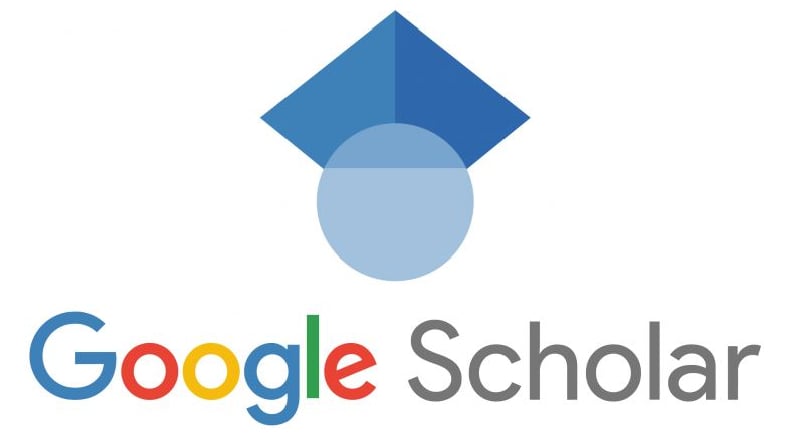Paradox Artificial Intelligence: Encourage Innovation or Kill Thoughts?
Keywords:
Artificial Intelligence, innovation, Destruction of Thought, ethic, critical thinkingAbstract
Artificial intelligence (AI) has brought about major innovations in various fields, from technology to education. However, behind these advances, there are concerns about the impact of AI on human thinking abilities. This article examines the dilemma humans face in adopting AI, likened to a paradox—between beneficial innovation and the potential destruction of critical thinking. To discuss this topic, this article focuses on two discussions. First, how society and individuals can balance the benefits of AI innovation with the risks of weakening critical thinking abilities and autonomy of thinking? Second, whether ethical boundaries need to be applied in the use of AI to avoid negative impacts on human intellectual abilities. By combining theoretical reviews and case analysis, this article highlights how AI can optimize productivity and innovation while questioning whether excessive dependence on technology can hinder humans' ability to think independently and critically. The discussion also touches on ethical aspects, where considerations need to be made in setting limits on the use of AI so as not to threaten human cognitive abilities and creativity. Ultimately, this article aims to provide a deeper understanding of how AI can be a tool for innovation as well as a potential threat to human intellectual development.
Downloads
References
Abrams, M., Abrams, J., Cullen, P., & Goldstein, L. (2019). Artificial Intelligence, Ethics, and Enhanced Data Stewardship. IEEE Security and Privacy, 17(2), 17–30. https://doi.org/10.1109/MSEC.2018.2888778
Arisanti, I., Kasim, M., & Mardikawati, B. (2024). Pendidik Di Era Cybernetics 4.0. Murthada INNOVATIVE: Journal Of Social Science Research, 4, 5195–5205.
Bakiner, O. (2023). What do academics say about artificial intelligence ethics? An overview of the scholarship. AI and Ethics, 3(2), 513–525. https://doi.org/10.1007/s43681-022-00182-4
Chen, L., Chen, P., & Lin, Z. (2020). Artificial Intelligence in Education: A Review. IEEE Access, 8, 75264–75278. https://doi.org/10.1109/ACCESS.2020.2988510
Creswell, J. W. (2009). Research Design: Qualitative, Quantitative and Mixed Approaches (3rd Edition). In Research Design: Qualitative, Quantitative, and Mixed Methods Approaches. https://doi.org/10.2307/1523157
Dendi, I. M., & Sanjaya, M. (2024). ARTIFICIAL INTELLIGENCE (Issue June).
Eka Puji Astutik, Nur Afif Ayuni, A. M. P. (2023). Artificial Intelligence: Dampak Pergeseran Pemanfaatan Kecerdasan Manusia Dengan Kecerdasan Buatan Bagi Dunia Pendidikan Di Indonesia. Sindoro Cendekia Pendidikan, Vol. 1(10), 101–112.
González-Esteban, E., & Sanahuja-Sanahuja, R. (2023). Ethical demands for responsable journalism in the context of artificial inteligence. Daimon, 90, 131–145. https://doi.org/10.6018/daimon.557391
Gruetzemacher, R., & Whittlestone, J. (2022). The transformative potential of artificial intelligence. Futures, 135. https://doi.org/10.1016/j.futures.2021.102884
Hwang, G. J., Xie, H., Wah, B. W., & Gašević, D. (2020). Vision, challenges, roles and research issues of Artificial Intelligence in Education. In Computers and Education: Artificial Intelligence (Vol. 1). https://doi.org/10.1016/j.caeai.2020.100001
Isti’anatul Mashlahah, & Syamsul Arifin. (2023). Dampak Perkembangan Teknologi Terhadap Perilaku Dan Kehidupan Pemuda Pemudi Di Era Milenial. Jurnal Pengabdian Masyarakat Dan Penerapan Ilmu Pengetahuan, 4(2), 9–13. https://doi.org/10.25299/jpmpip.2023.13167
Jačisko, J., Veselý, V., Chang, K. V., & Özçakar, L. (2024). (How) ChatGPT—Artificial Intelligence Thinks It Can Help/Harm Physiatry. American Journal of Physical Medicine and Rehabilitation, 103(4), 346–349. https://doi.org/10.1097/PHM.0000000000002370
Jelahut, F. E., Utang, H. Y., Jelahut, Y. E., & Jehamat, L. (2021). MENALAR SKEPTIS ADOPSI ARTIFICIAL INTELIGENCE (AI) DI INDONESIA: ‘Sebuah Tinjauan Filsafat Ilmu Komunikasi.’ Jurnal Filsafat Indonesia, 4(2), 172–178. https://doi.org/10.23887/jfi.v4i2.33794
Korteling, J. E. (Hans., van de Boer-Visschedijk, G. C., Blankendaal, R. A. M., Boonekamp, R. C., & Eikelboom, A. R. (2021). Human- versus Artificial Intelligence. Frontiers in Artificial Intelligence, 4. https://doi.org/10.3389/frai.2021.622364
Mulianingsih, F., Anwar, K., Shintasiwi, F. A., & Rahma, A. J. (2020). Artificial Intellegence Dengan Pembentukan Nilai Dan Karakter Di Bidang Pendidikan. IJTIMAIYA: Journal of Social Science Teaching, 4(2), 148. https://doi.org/10.21043/ji.v4i2.8625
Najwa Fathiro Cahyono, Khurrotul ’Uyun, & Siti Mukaromah. (2023). ETIKA PENGGUNAAN KECERDASAN BUATAN PADA TEKNOLOGI INFORMASI. Prosiding Seminar Nasional Teknologi Dan Sistem Informasi, 3(1), 482–491. https://doi.org/10.33005/sitasi.v3i1.334
Nguyen, A., Ngo, H. N., Hong, Y., Dang, B., & Nguyen, B. P. T. (2023). Ethical principles for artificial intelligence in education. Education and Information Technologies, 28(4), 4221–4241. https://doi.org/10.1007/s10639-022-11316-w
Ouyang, F., & Jiao, P. (2021). Artificial intelligence in education: The three paradigms. Computers and Education: Artificial Intelligence, 2. https://doi.org/10.1016/j.caeai.2021.100020
Ramadhan, F. K., Faris, M. I., Wahyudi, I., & Sulaeman, M. K. (2023). PEMANFAATAN CHAT GPT DALAM DUNIA PENDIDIKAN. Jurnal Ilmiah Flash, 9(1). https://doi.org/10.32511/flash.v9i1.1069
Rochmawati, D. R., Arya, I., & Zakariyya, A. (2023). MANFAAT KECERDASAN BUATAN UNTUK PENDIDIKAN. Jurnal Teknologi Komputer Dan Informatika, 2(1), 124–134. https://doi.org/10.59820/tekomin.v2i1.163
Saldana, J. (2011). Fundamentals of Qualitative Research. Oxford University Press, Inc.
Salvagno, M., Taccone, F. S., & Gerli, A. G. (2023). Can artificial intelligence help for scientific writing? Critical Care, 27(1). https://doi.org/10.1186/s13054-023-04380-2
Yang, W. (2022). Artificial Intelligence education for young children: Why, what, and how in curriculum design and implementation. Computers and Education: Artificial Intelligence, 3. https://doi.org/10.1016/j.caeai.2022.100061
Yufei, L., Saleh, S., Jiahui, H., & Abdullah, S. M. S. (2020). Review of the application of artificial intelligence in education. In International Journal of Innovation, Creativity and Change (Vol. 12, Issue 8, pp. 548–562). https://doi.org/10.53333/ijicc2013/12850
Downloads
Published
How to Cite
Issue
Section
License
Copyright (c) 2024 Abdul Karim Wirawan, Vina Amalia Saputri

This work is licensed under a Creative Commons Attribution 4.0 International License.






